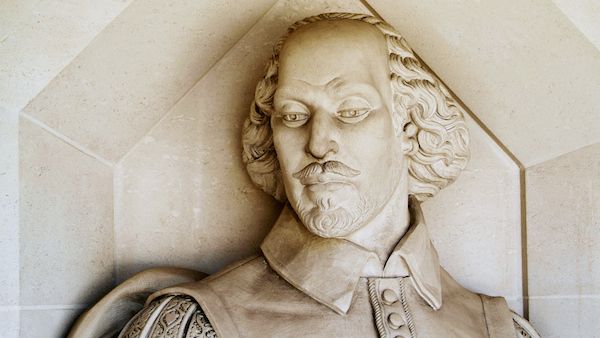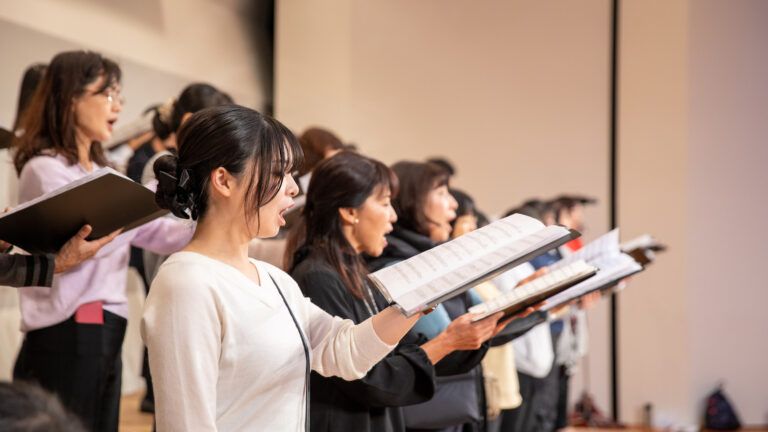I am something of a Shakespeare nut. I have read—and seen performed—all of his plays, most of them many times. I can sit in a performance of Hamlet or Much Ado About Nothing and laugh like a madman or cry like a baby at the beauty of his thoughts and words.
Of course, many people start to nod off as soon as his name is mentioned. They recall droning lectures and 9th grade readings of Romeo and Juliet.
But even people who think Shakespeare is oh-so-boring, have been enriched, even shaped, by his words—from “To be or not to be” to “Neither a borrower nor a lender be” and “The quality of mercy is not strained.”

In recent years, Shakespeare’s words have even shaped my praying, as I have often echoed the Bard’s words in my prayers:
1) A Morning Prayer
Some days it feels as though I am heading out to do battle, as Henry V did before the battle of Agincourt. So I will sometimes make his short prayer of trust and abandonment my own:
How thou pleasest, God, dispose the day!
(Henry V, IV, 3)
2) A Prayer of Confession
Though I’ve never killed my brother (or married his wife!), I have occasionally adapted the confession of Claudius in Hamlet to begin my own prayers of confession, remembering that “All may be well” when we confess our sins and experience God’s pardon:
O wretched state! O bosom black as death!
O limed soul, that struggling to be free
Art more engag’d. Help, angels! Make assay,
Bow, stubborn knees, and heart, with strings of steel,
Be soft as sinews of the newborn babe.
All may be well.
(Hamlet, III, 3)
3) A Prayer of Petition
In As You Like It, Orlando’s encounter with the exiled duke starts off badly. But he apologizes, explaining that he hopes his gentleness from that moment on will make up for his previous conduct. He says,
Let gentleness my strong enforcement be.
(As You Like It, II, 7)
I have made Orlando’s prayer my own on numerous occasions when I regretted my actions and, after swallowing my pride, tried to make a new start . . . with gentleness.
Ask Guideposts’ OurPrayer team to pray for you!
4) A Prayer for Gratitude
Among the first words Henry VI speaks in one of three history plays that tell the story of his reign are these:
O Lord, who lends me life,
lend me a heart replete with thankfulness.
(Henry VI, Part II, I, 1)
He applies the words to his gratitude for his wife, but I have applied those words to a multitude of settings.
5) A Prayer of Praise
I also frequently “repurpose” Florizel’s words, which he spoke in The Winter’s Tale to praise his sweetheart, Perdita:
What you do
Still betters what is done.
(The Winter’s Tale, IV, 4)
I make those lines a prayer of praise to God. When I see an amazing sunset, hear a moving song,or glimpse a blooming flower, I pray, “What you do still betters what is done.”
6) A Wedding Prayer
In the last act of Henry V, Queen Isabel of France prays the following for her daughter as she is given in marriage to the victorious King of England after the battle of Agincourt:
God, the best maker of all marriages,
Combine your hearts in one.
(Henry V, V, 2)
Though the participants rarely recognize it as a quote from Shakespeare, I will occasionally pronounce the above prayer in a wedding ceremony or pen them in a wedding card.
7) A Prayer of Trust
Shakespeare’s last recorded prayer may be contained in the first line of his last will and testament, dated January 25, 1616, just three months before he died:
I commend my soul into the hands of God my Creator, believing through the merits of Jesus Christ, my Savior, to be made a partaker of life everlasting.
It resembles the prayer of Jesus on the cross, recorded in Luke 23:46: “Father, into thy hands I commend my spirit,” which was in Shakespeare’s day a part of the funeral service in the Anglican Book of Common Prayer.
These are not the only prayers found in Shakespeare, but they are the seven I recall and repeat most often. If they turn out to be helpful to you in putting a little more poetry into your prayers, I will say, “Amen, amen” (Coriolanus, III, 3).





